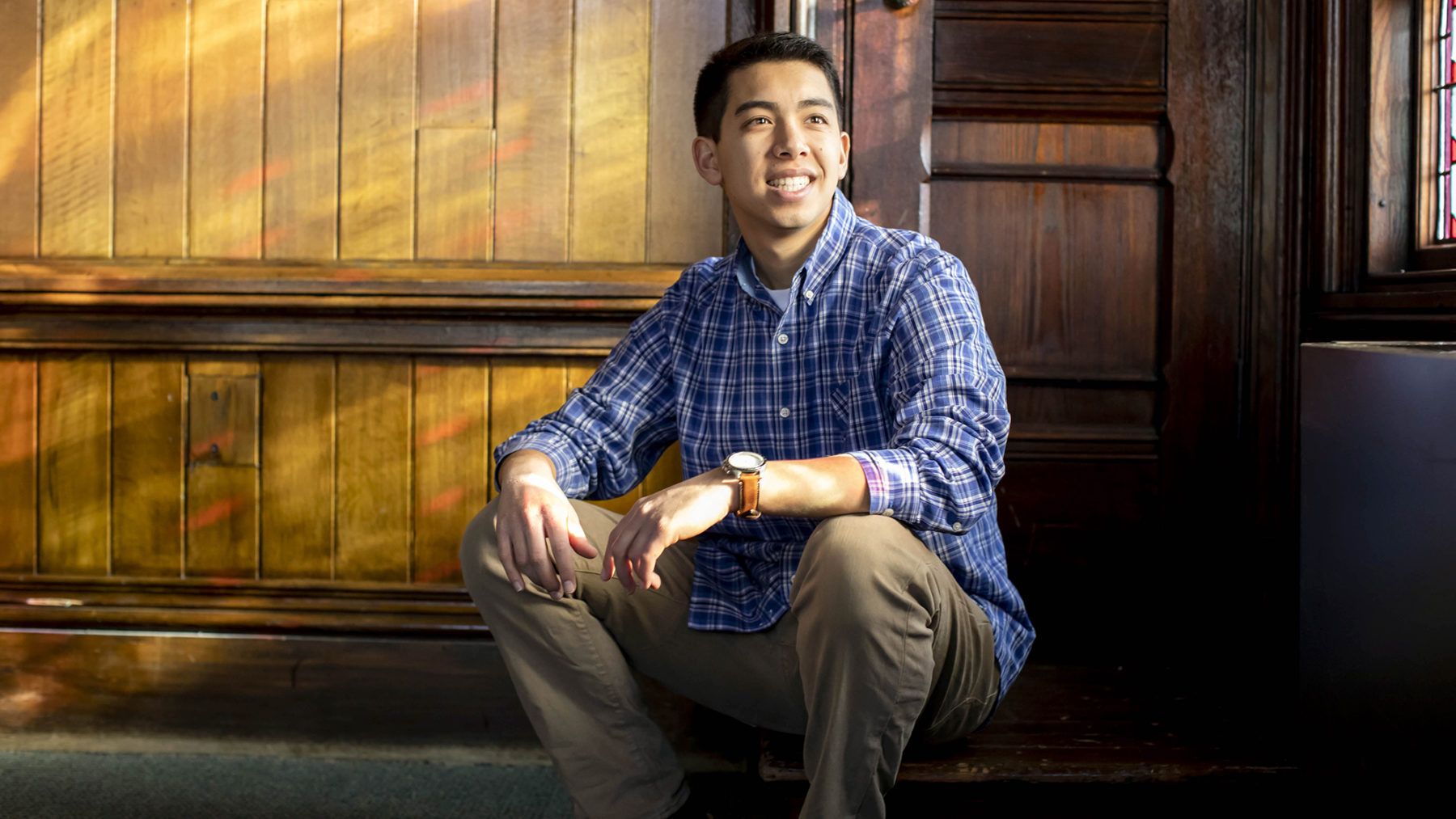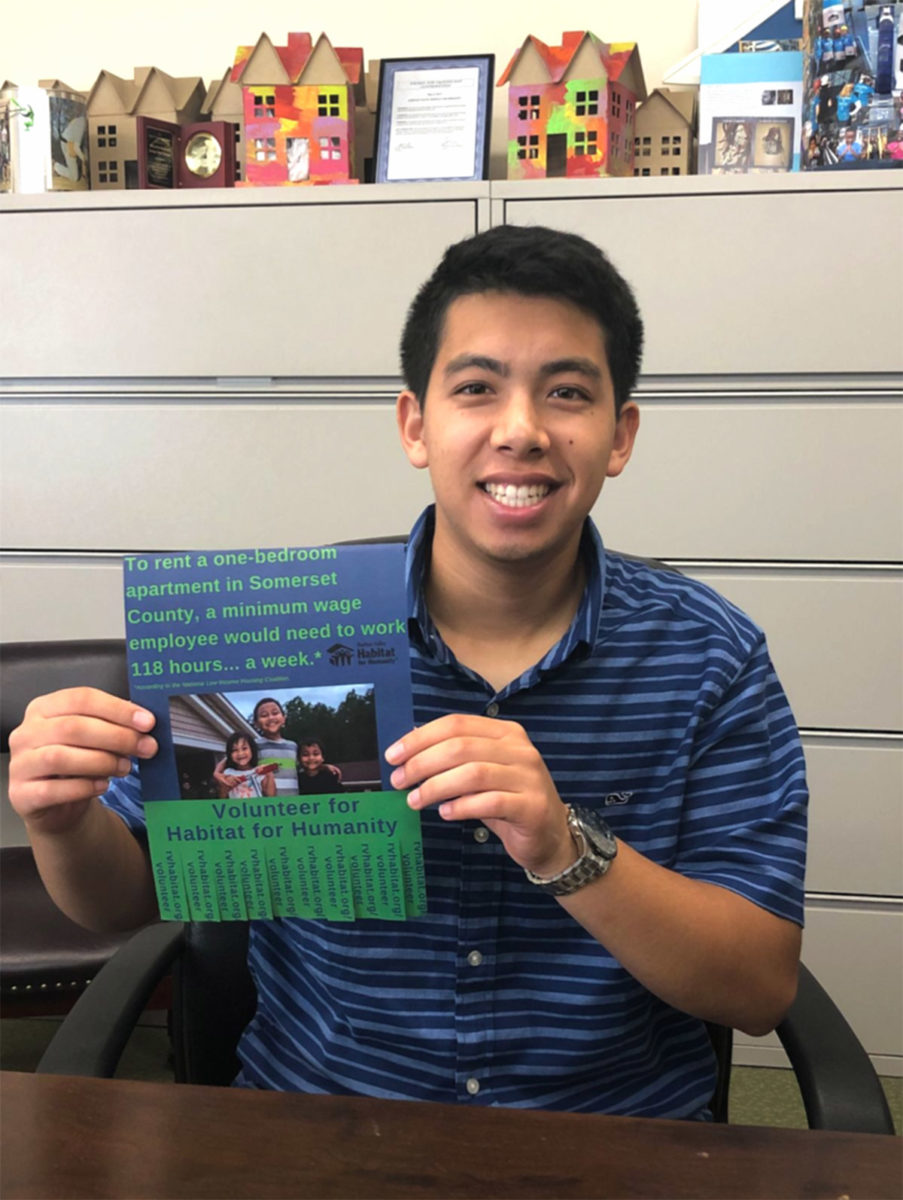
Rose Lincoln/Harvard Staff Photographer
Home improvements
“We need to be much more aggressive and not accept the status quo. Just because that’s how it is now doesn’t mean we have to accept that.”
During World War II, one side of Jason Lam’s family was in Hong Kong, crammed into a tiny apartment, fighting to keep what little they had. The other side struggled to set down roots in a foreign land after fleeing Germany to escape the Holocaust.
Growing up with these stories instilled in Lam a belief in the fundamental importance of home — and that having a happy, productive life is nearly impossible without one. So when he picked a service project to take on before starting at Harvard — as part of the new Service Starts with Summer program — he gravitated toward the Habitat for Humanity nonprofit.
Like most people, Lam mostly knew Habitat as the organization that builds houses for lower-income individuals and families. His local Raritan Valley, N.J., group was looking to expand its scope beyond home construction and start a campaign to educate residents and politicians about the shortage of affordable housing in the area. What they most needed was someone who could focus on research. Lam jumped at the opportunity.
“In New Jersey, one in six people are rent burdened. That means they spend more than 30 percent of their income on housing costs,” Lam said, quoting research from the National Low Income Housing Coalition. “To give an example, to rent a modest one-bedroom housing unit in Somerset County, a minimum-wage worker would have to work 118 hours a week.”
Lam used the statistical data for posters and fliers that Habitat for Humanity could display in its ReStores, retail spaces that sell donated appliances and furniture.
He also used the information for op-ed pieces for local papers. When doing research for those, he interviewed former Habitat clients. One in particular stuck in his mind — a family with four children living in a small two-bedroom apartment in a tough part of town.


Two posters that Lam created for Habitat for Humanity’s ReStore.
Courtesy of Jason Lam
The mother “wouldn’t let her kids go outside because people were drinking and doing other things that she didn’t want them to see,” Lam said. “And her kids couldn’t study privately because there weren’t enough rooms in the apartment, and it was always so loud, no one could focus.
“Then she got a Habitat for Humanity home. Now her kids could go outside and study in relative quiet. The oldest one is in college, and the other three are on that path.”
This story reinforced for Lam just how much a home can affect a life, for better or worse. “How can we let people in Raritan Valley live like this?” he asked himself. He knew that a long-term solution couldn’t simply be to build more houses or inform more people of the situation; it had to be something systemic.
These experiences inspired Lam’s decision to concentrate in economics at Harvard, so he can better understand and create affordable housing policies on a large scale in the future.
“I think about my family — from my great-grandfather who fled from Europe during the Holocaust, worked for low wages in a factory, and then his daughter becoming a public school teacher. Her daughter, my mom, worked with charities, and now I’m going to Harvard. We achieved the American dream, or our slice of it, and it’s my ultimate duty to make sure that other Americans can do it now.”
This story is part of the To Serve Better series, exploring connections between Harvard and neighborhoods across the United States.




